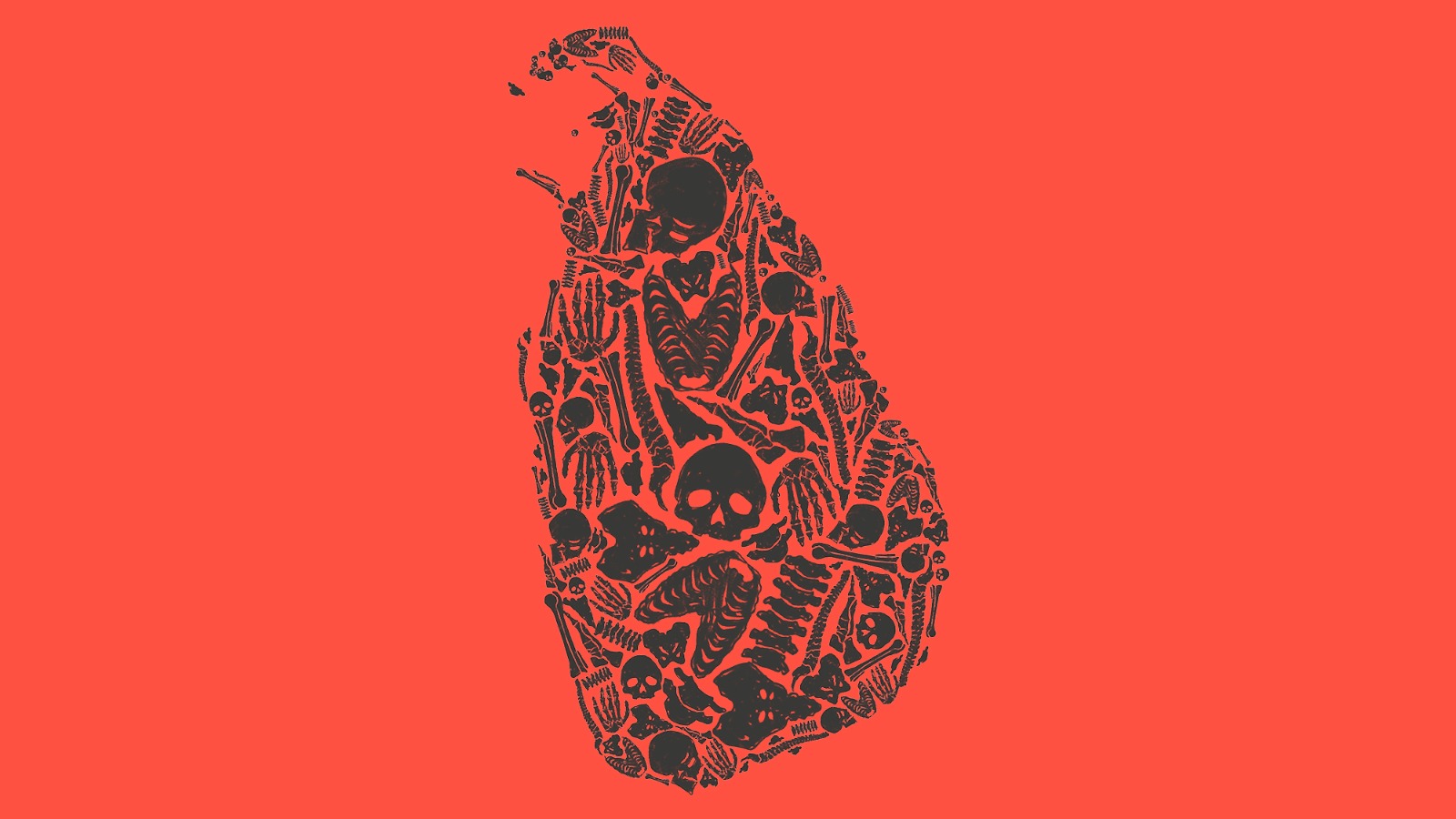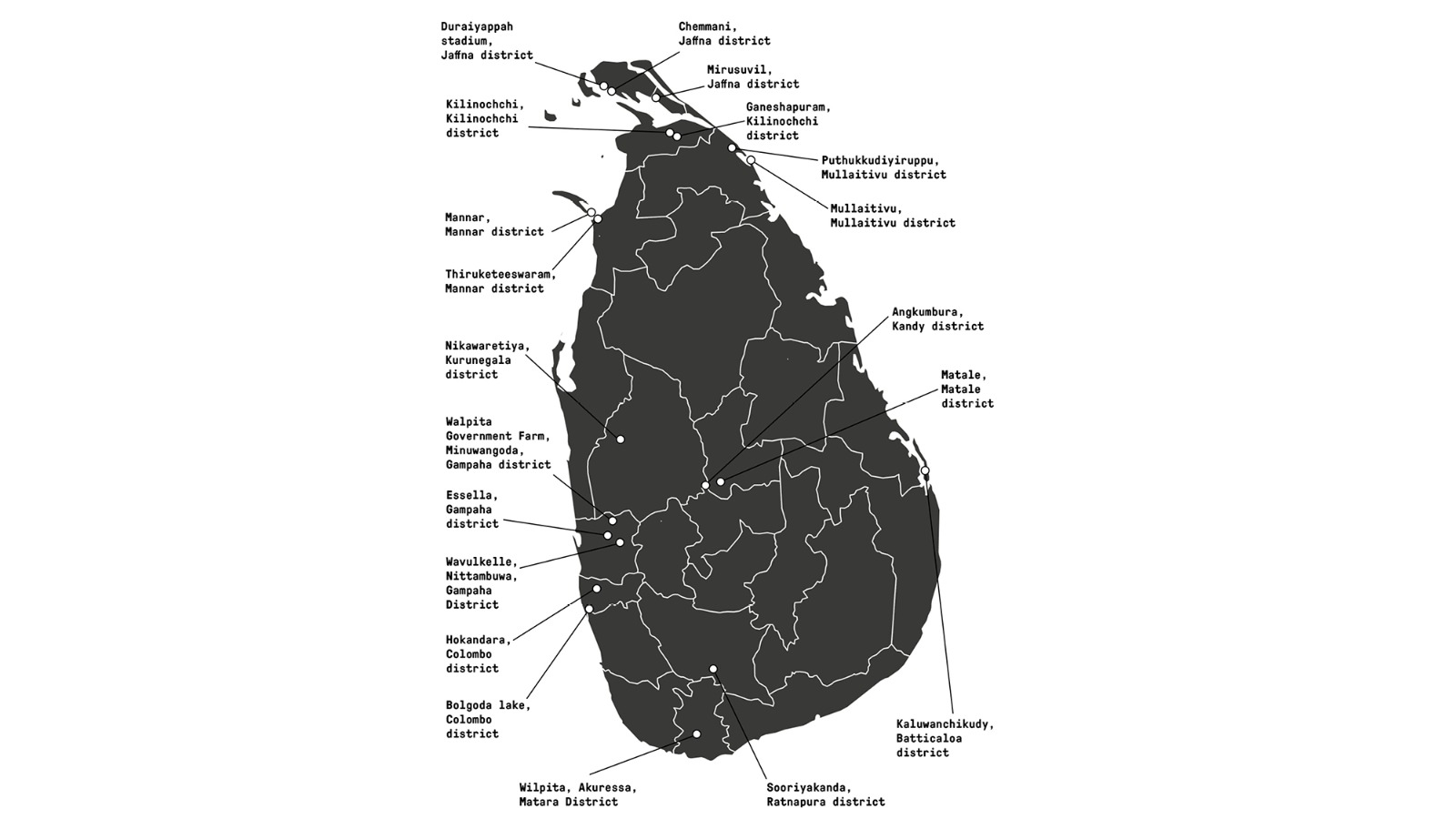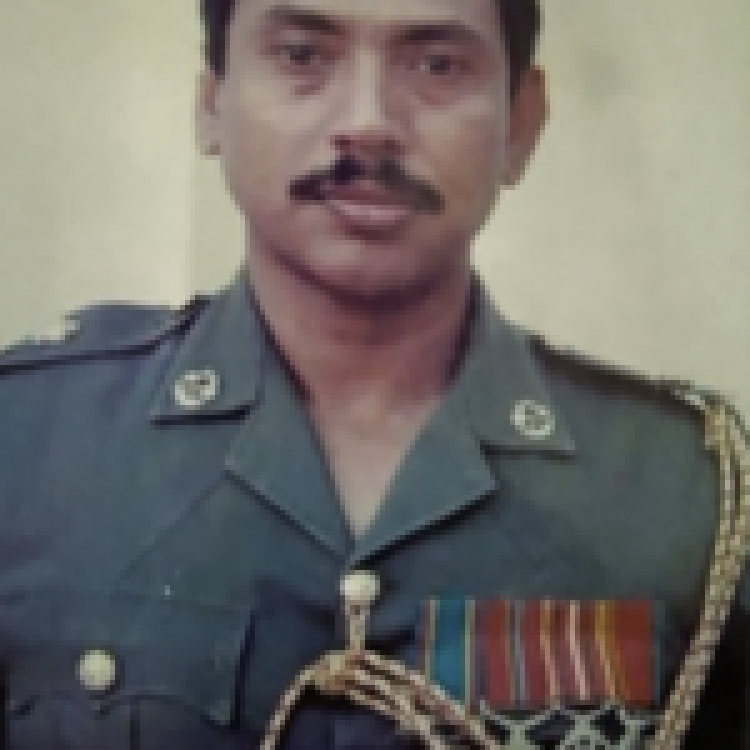
A new joint report, 'Mass Graves and Failed Exhumations', details a pattern of systematic failures by Sri Lanka to exhume and investigate mass graves across the island.
The report authored by Journalists for Democracy in Sri Lanka (JDS), the International Truth and Justice Project (ITJP), Centre for Human Rights and Development (CHRD) and the Families of the Disappeared (FoD), highlights how successive Sri Lankan governments have interfered in investigations into mass graves between 1989 and 2009. The report highlights that while tens of thousands of bodies lie undiscovered in mass graves across the island, only 20 mass graves have been partially exhumed over the last 30 years.
"None of Sri Lanka's numerous Commissions of Inquiry were mandated to look into mass graves. Instead, efforts to uncover the truth have been stymied," the report states.
"Magistrates and forensic experts have been transferred abruptly, police have delayed carrying out judicial orders, families' lawyers have been denied access to sites, no effort has been made to find living witnesses, no ante mortem data was collection and, in the very rare cases where someone was convicted, they were then pardoned," the report adds.

The report also highlights that very few exhumations have led to the identification of victims or provided explanations for the cause of their deaths.
'Mass Graves and Failed Exhumations' focuses on the failures of the exhumations of the mass graves investigated in Matale in 2012-2013 and the mass grave in Mannar that was investigated in 2018. According to the report, over 550 bodies were exhumed from these sites but to date, no one has been identified.
In a press release, K.S Ratnavale, Executive Director of the Centre for Human Rights and Development said:
"There is total lack of political will with regard to mass graves investigations and enforced disappearance in Sri Lanka."
“Added to this, the Attorney General's Department views such mass grave investigations as part of ordinary criminal proceedings and is hostile to victim families. This was evident in the Mannar mass graves investigations," he added.
Among their key recommendations, the report authors have called on Sri Lanka to:
"Enact a specific law and policy on the management of mass graves, and exhumations, which includes their identification, preservation and investigation over time. Preservation should include the safe storage of skeletal remains removed from graves or the soil and ensure that the chain of custody remains intact."

